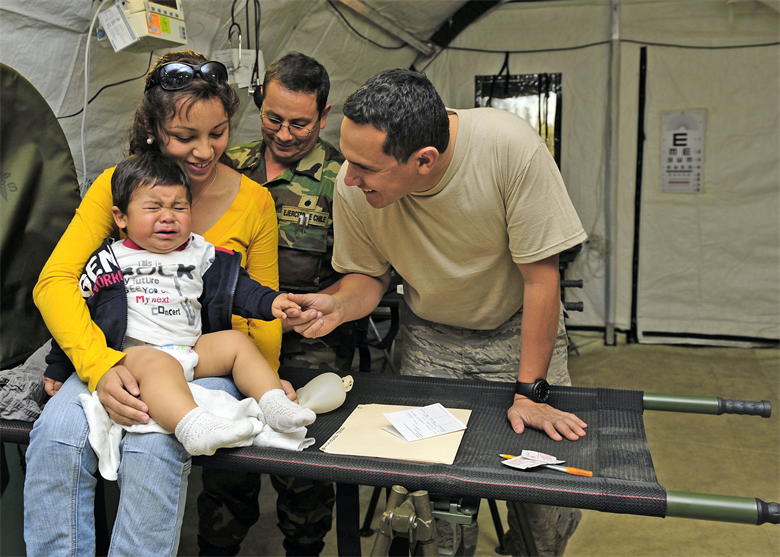The US should protect its foreign translators
January 23, 2019
As Army veterans know quite personally, a good translation can be the difference between life and death.
Interpreters translate warnings about where potential mines may be, help soldiers communicate with locals, and often fight alongside American troops during combat. These translators act as a bridge between American soldiers and the culture and language of the communities they work in, which is crucial for any operation.
Take Janis Shinwari, for example. According to The Atlantic, Shinwari was one of the over fifty thousand local interpreters employed by the United States military and NATO during the Afghan and Iraq wars. In the past decade, foreign interpreters such as Shinwari have saved the lives of numerous Americans and allies in the Middle East.
Matt Zeller, a Afghanistan war veteran, worked alongside Shinwari. In an interview with the Atlantic he said, “[Shinwari] was more important to our survival than our weapons.”
[Shinwari] was more important to our survival than our weapons.
-Veteran Matt Zeller
Interpreters risk their lives to work for the United States military abroad both during their service and after American troops have departed. Because of their work, translators and their families are regular targets of terrorist groups.
Shortly before his death, the late Senator Ted Kennedy created the Special Immigrant Visa Program to provide asylum for interpreters and their families. This program promised that the translators who risked their lives to save ours would be rewarded by safety.
Zeller used this program after returning to the United States. He submitted a Special Immigrant Visa application to bring Shinwari and his family to safety in the United States as he was promised. However, they waited four years and heard nothing back from the State Department.
Zeller and Shinwari were not alone. Congress passed bills to provide for thousands of visas for interpreters like Shinwari, yet very few are issued. For example, the Afghanistan asylum bill provided for the granting of fifteen hundred Visas each year, and despite overwhelming demand, only three visas were granted.
Mohammed, another translator who helped the United States, started his application process in 2010 and finally made it to the United States over three and a half years later.
In this period of waiting, Mohammed experienced firsthand the cost of this wait. During the three and a half years, the Taliban killed his father and kidnapped his youngest brother, forcing Mohammed to spend his life savings to rescue him. The bureaucracy that stopped Mohammed from coming to the United States tore both his family and finances apart.
Going back to Janis Shinwari, Zeller was not content with leaving a man who saved him in danger. Zeller saw that the State Department simply did not care, and knew his last option was going straight to Congress. Zeller issued a call to Congress, and with the help of eight Congressmen, Janis got his Visa.
After Janis arrived, Zeller personally involved more members of Congress in his effort to reform the Visa program, which has been mostly effective. After 2014, the State Department had given out 4000 Visas each year, which was a tremendous improvement. This increase has saved countless lives and given justice to the brave translators who helped America.
Unfortunately for the thousands of other local interpreters still waiting, our story doesn’t end here. When Donald Trump was sworn into office, the national agenda became quite clearly America first. This motto has excluded those who have sacrificed everything for our country: foreign translators.
Only a few months into the new administration, Former Secretary of State Rex Tillerson instructed American embassies all across the world to increase scrutiny of Visa applicants once again. Since this direction, the number of Special Immigrant Visas granted by the State Department has fallen by over half in the first and second quarters of the 2018 fiscal year. We are practically back where we were before 2014, a system that leaves people who have helped us waiting for their death.
When the translators decided to give up everything, risking life and limb to help American troops, we made a promise to them, and to their families. We made a promise to Mohammed, Shinwari, and thousands of others, a promise that was not kept. This miscarriage of justice is not only illegal but dangerous.
What group of people could be more qualified and deserving of coming to the United States than those who fought for our country? The unmatched bravery and support of these local interpreters cannot be ignored simply because they come from the Middle East.
When Shinwari arrived in the United States in 2013, he and his family finally felt safe for the first time years. Let us at least make that first step easier for those who have done the same for our troops countless times.
There is no reason for our country to go back to the old, ineffective system and create more injustice. The least we can do is repay those who saved us with safety. To save lives. To keep our promise.


